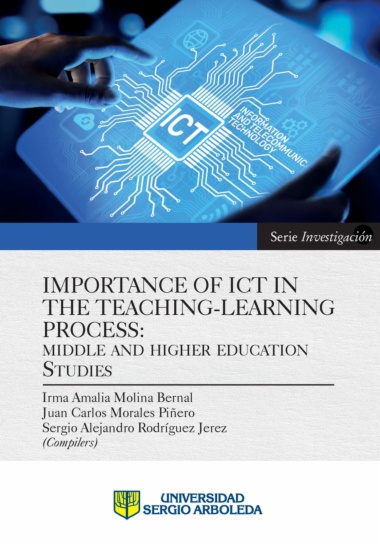The following chapter presents the results of the ethnographic study in the research project called “Incidence of ICTs in the improvement of the Saber 11: an analysis based on the TPACK model”, developed between the ICFES and the Sergio Arboleda University (Bogotá). The study’s objective was to learn about the pedagogical practices and teaching styles of teachers, the integration of ICTS into didactics, and the behavior of students in grades 10 and 11. The methodology was ethnographic, for which seven (7) secondary education institutions from the colleges of Bogotá and Cundinamarca were selected. Two teachers from each institution were selected, one with several years of experience and one with less. A discussion group was also carried out for each establishment, with students of these two teachers. The results confirm the importance of training in ICTs and that they have an impact on teaching practices, which are at the same time related to training and the proper integration of ICTs.
- Cover
- Title page
- Copyright page
- Index
- Introduction
- Chapter 1 Te TPACK model as an analysis perspective in the integration of ICTs in education: a state of the art
- Abstract
- Keywords
- Introduction
- Methodology
- Results
- Conclusions
- References
- Chapter 2 ICTs and their impact on academic results: an analysis based on the TPACK model
- Abstract
- Keywords
- Introduction
- Methodology Analysis unit and population
- Data collection
- Techniques and variables
- Lineal regression
- ANOVA
- Results
- Linear regression and ANOVA
- Discussion
- References
- Annex 1 Questionnaire used to collect the information
- Chapter 3 Evaluating the Efciency of schools in Bogotá and Cundinamarca: a metafrontier analysis
- Abstract
- Keywords
- Introduction
- Methodology
- Population and sample
- Variables
- Metafrontier of the study
- Results
- Conclusions
- References
- Chapter 4 ICTs and their impact on secondary education schools: Case studies in Bogotá and Cundinamarca
- Abstract
- Keywords
- Introduction
- State of the art
- National context
- International context
- Methodology
- Information gathering management
- Analysis and results
- Discussion
- References
- Chapter 5 Educational software and its impact on the learning process in university
- Abstract
- Keywords
- Problem statement and justifiation
- State of the art
- Methodology
- Study contribution
- References
- Annexes Program for Propositional Logic activities
- Sessions for the application of the LógicaUCAB Software
- Evaluation activities
- Chapter 6 Integration of ICTs in reading and writing teaching and learning in college
- Abstract
- Keywords
- Introduction
- ICTs integration in reading and writing teaching-learning in the University: state of the art
- ICTs in the University
- ICTs in reading and writing teaching and learning at the University
- Conclusions
- Defining the guideline
- Teacher training
- Focusing teaching on real situations
- Establishing the “draft policy”
- Defining xplicit assessment criteria
- Develop writing tutoring programs
- Work on the dissemination of tools to prevent or confront procrastination
- Benefits and isk ICT integration in reading and writing teaching- learning in the University
- References
- Chapter 7 Ethics in educational technology: a perspective in the light of philosophical texts on technique
- Abstract
- Keywords
- Introduction
- The hallenge of the technique
- Hermeneutics in qualitative research
- Technique in interpreted texts
- Final discussion
- References

